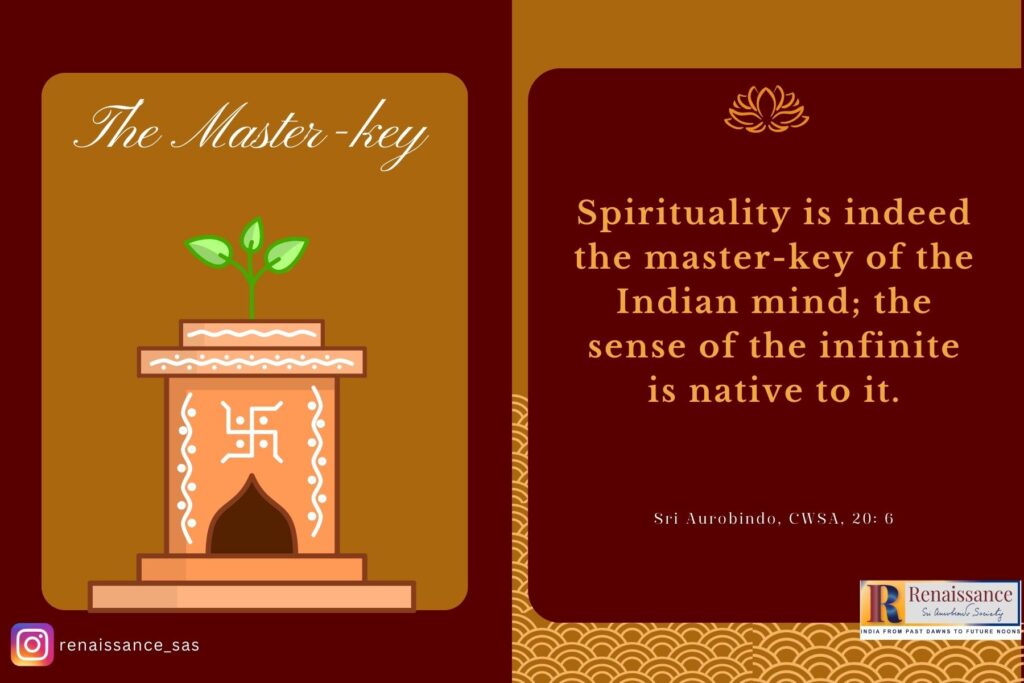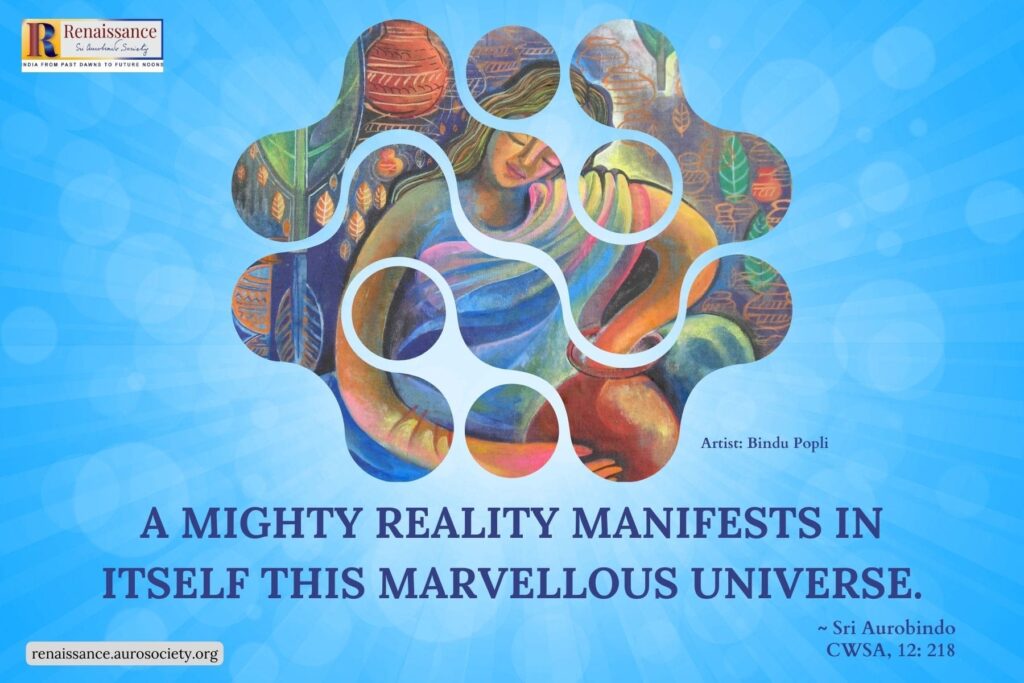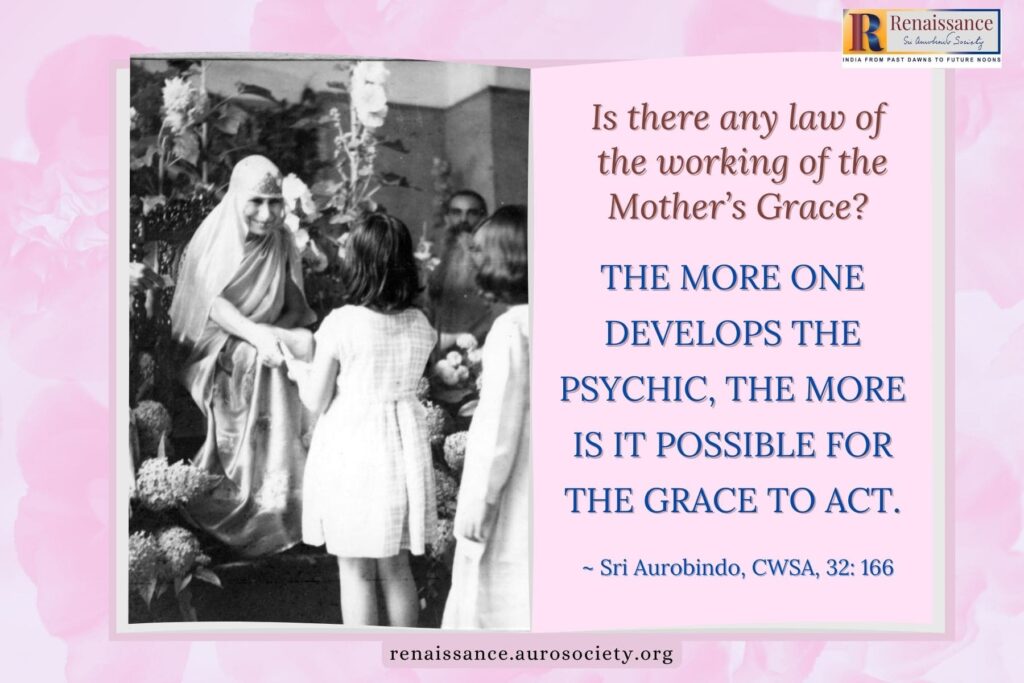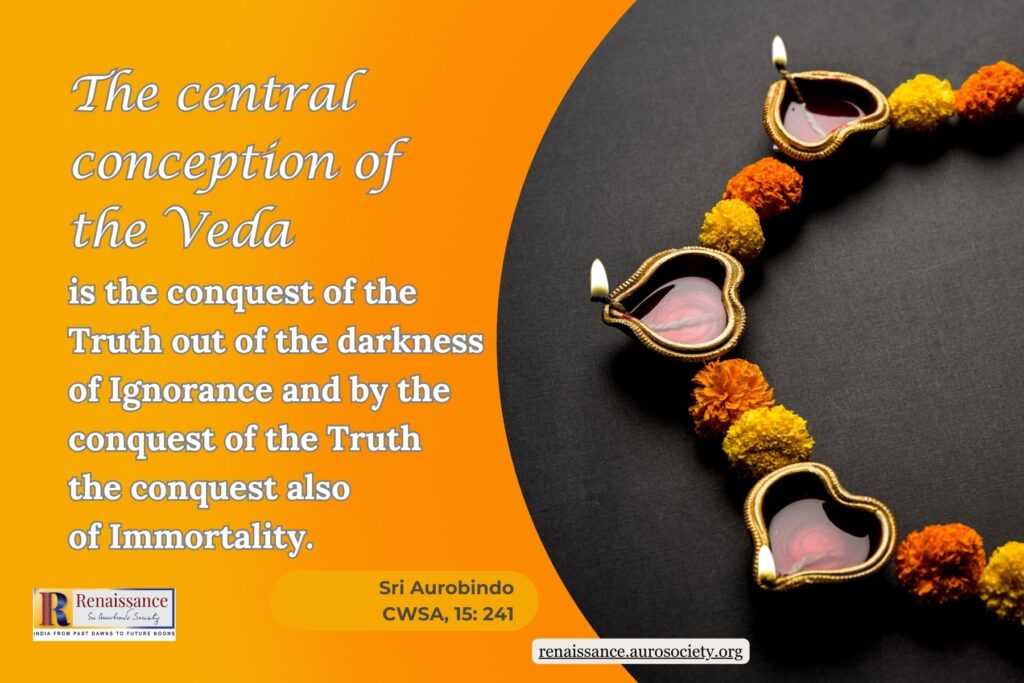Editor’s note: Featured here are selected passages from a few of Sri Aurobindo’s writings on the theme of Indian renaissance and its significance for the world and humanity.

This Renaissance, this new birth in India,… must become a thing of immense importance both to herself and the world, to herself because of all that is meant for her in the recovery or the change of her time-old spirit and national ideals, to the world because of the possibilities involved in the rearising of a force that is in many respects unlike any other and its genius very different from the mentality and spirit that have hitherto governed the modern idea in mankind, although not so far away perhaps from that which is preparing to govern the future.
(Sri Aurobindo, CWSA, Vol. 20, p. 3)
***

The Indian renaissance is arising, and that must determine its future tendency.
The recovery of the old spiritual knowledge and experience in all its splendour, depth and fullness is its first, most essential work; the flowing of this spirituality into new forms of philosophy, literature, art, science and critical knowledge is the second; an original dealing with modern problems in the light of the Indian spirit and the endeavour to formulate a greater synthesis of a spiritualised society is the third and most difficult.
Its success on these three lines will be the measure of its help to the future of humanity.
(CWSA, Vol. 20, p. 15)
***
The Spirit is a higher infinite of verities; life is a lower infinite of possibilities which seek to grow and find their own truth and fulfilment in the light of these verities. Our intellect, our will, our ethical and our aesthetic being are the reflectors and the mediators.
The method of the West is to exaggerate life and to call down as much—or as little—as may be of the higher powers to stimulate and embellish life.
But the method of India is on the contrary to discover the spirit within and the higher hidden intensities of the superior powers and to dominate life in one way or another so as to make it responsive to and expressive of the spirit and in that way increase the power of life. Its tendency with the intellect, will, ethical, aesthetic and emotional being is to sound indeed their normal mental possibilities, but also to upraise them towards the greater light and power of their own highest intuitions.
The work of the renaissance in India must be to make this spirit, this higher view of life, this sense of deeper potentiality once more a creative, perhaps a dominant power in the world.
But to that truth of itself it is as yet only vaguely awake; the mass of Indian action is still at the moment proceeding under the impress of the European motive and method and, because there is a spirit within us to which they are foreign, the action is poor in will, feeble in form and ineffective in results, for it does not come from the roots of our being. Only in a few directions is there some clear light of self-knowledge.
It is when a greater light prevails and becomes general that we shall be able to speak, not only in prospect but in fact, of the renaissance of India.
(ibid, pp. 15-16)
***
We cannot go backward to a past form of our being, but we can go forward to a large repossession of ourselves in which we shall make a better, more living, more real, more self-possessed use of the intervening experience.
We can still think in the essential sense of the great spirit and ideals of our past, but the form of our thinking, our speaking, our development of them has changed by the very fact of new thought and experience; we see them not only in the old, but in new lights, we support them by the added strength of new view-points, even the old words we use acquire for us a modified, more extended and richer significance…
(ibid, p. 51)
***

“…we must look at each province of culture and, keeping always firm hold on a perception of what the Indian spirit is and the Indian ideal is, see how they can work upon the present situation and possibilities in each of these provinces and lead to a new victorious creation.
In such thinking it will not do to be too dogmatic. Each capable Indian mind must think it out or, better, work it out in its own light and power,… and contribute some illumination or effectuation. The spirit of the Indian renascence will take care of the rest, that power of the universal Time-Spirit which has begun to move in our midst for the creation of a new and greater India.”
(ibid, p. 52)
Also see:
Sri Aurobindo on the Ideal of Indian Nationalism
~ Design: Beloo Mehra



